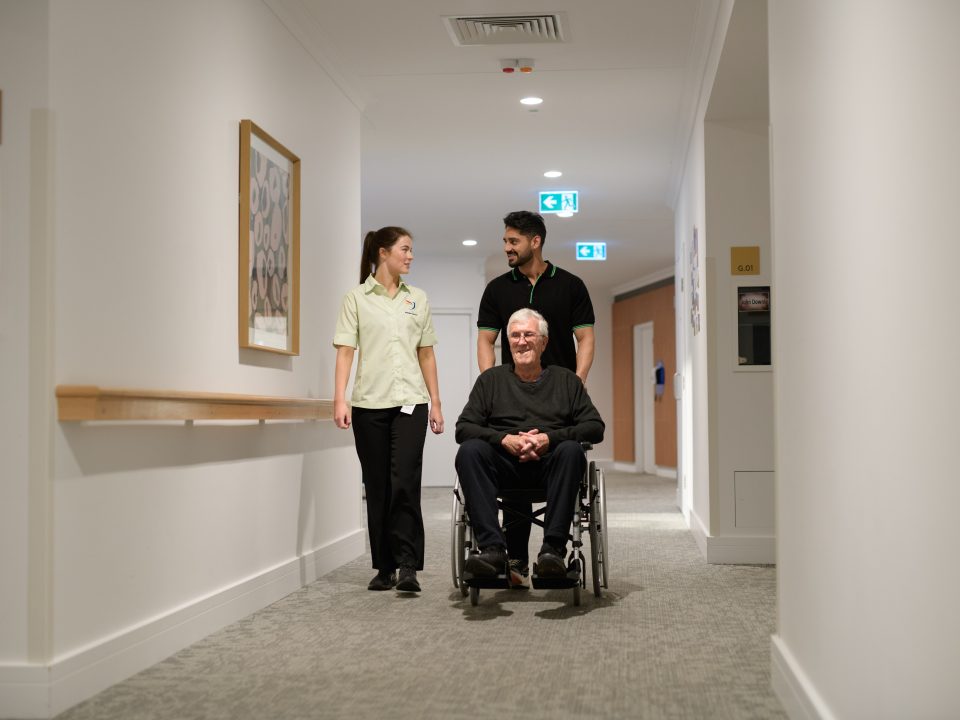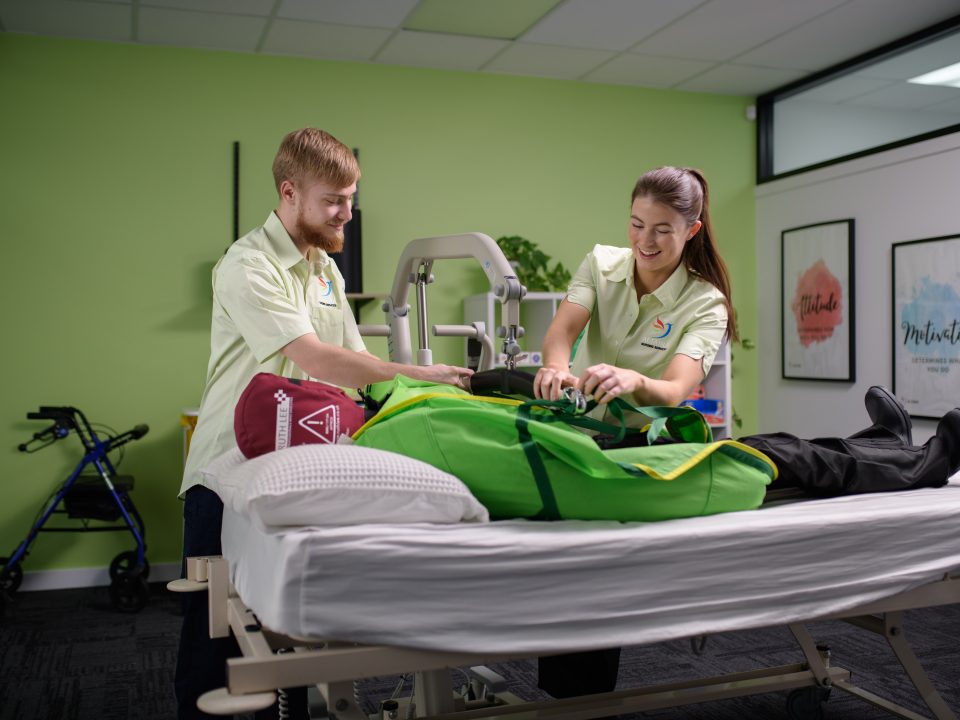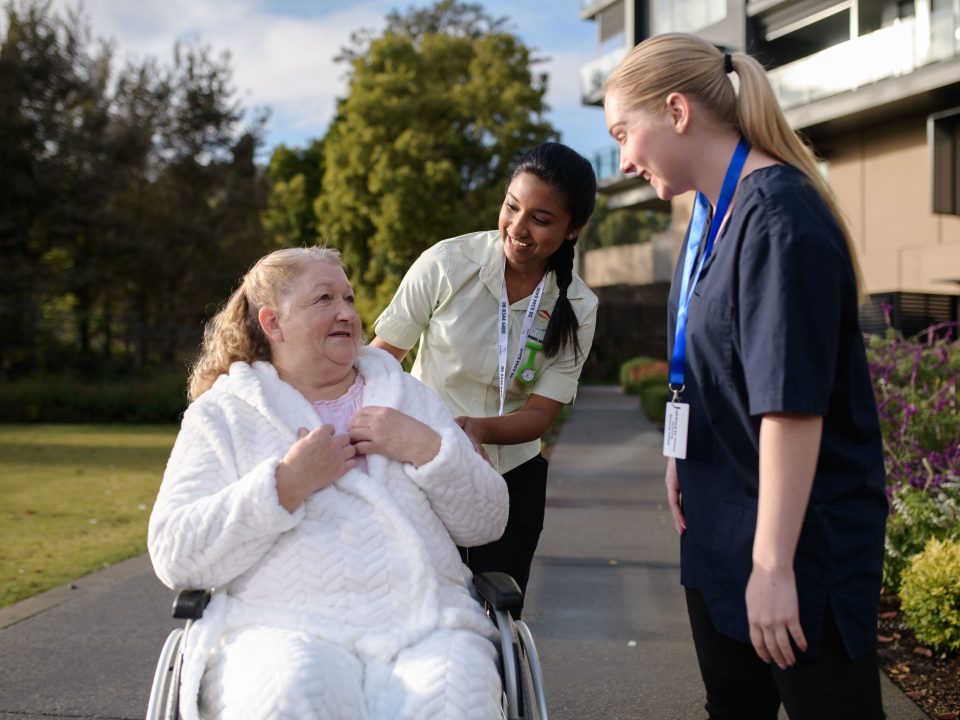
Innovation Transforming Aged Care – Our Involvement
February 14, 2025Navigating Difficult Conversations: How to Communicate with Residents’ Families

Whilst working in aged care is extremely rewarding, it can sometimes come with challenges, with one of the most delicate aspects of the role being communicating with residents’ families. Whether it’s discussing care plans, addressing concerns, or delivering difficult news, clear and compassionate communication is essential. For graduate nurses entering the field, developing strong communication skills will not only enhance relationships with families but also contribute to better outcomes for residents.
Families of residents entrust aged care staff with the well-being of their loved ones, which can be both reassuring and stressful for them. Many families experience feelings of guilt, anxiety, or helplessness when transitioning a loved one into aged care. Being empathetic to their emotions and concerns can help establish trust and ease tensions.
Here are some strategies to keep in mind when communicating with resident’s families;
Active Listening
Listening is one of the most powerful tools in any conversation. When speaking with families, it is important to maintain eye contact and use open body language. Try to avoid interrupting and allow them to express their concerns fully. Repeating key points to confirm understanding is another way to make families feel as though they are being listened to and cared about.
Clarity and Transparency
Avoid complicated medical jargon that they may not understand and instead communicate in clear, simple language. Families appreciate honesty, so it is okay to be upfront but remain sensitive. If discussing a complex issue, break it down into manageable pieces, ensuring they understand each part before moving forward.
Empathy and Reassurance
Difficult conversations often involve strong emotions so being able to acknowledge and validate their feelings can help to de-escalate a situation and create a safe space. Phrases like “I understand this must be difficult for you” or “We are committed to providing the best care possible” can help families feel heard and supported.
Managing Expectations
Families may sometimes have high or unrealistic expectations regarding care and outcomes. It’s important to clearly communicate what the care team can provide while maintaining a compassionate approach. If a request cannot be met, take the time to explain why and suggest suitable alternatives.
Handling Conflict Professionally
Occasionally, due to elevated emotions and tense situations, families of residents may become frustrated or upset. In these situations it is important to remember to stay calm and professional, try to avoid taking comments personally, focus on problem-solving rather than defending, and if necessary, involve senior staff or management to mediate discussions.
Navigating End-of-Life Discussions
Conversations about palliative care or a resident’s declining health can be particularly challenging. Always approach these discussions with as much sensitivity as possible. This includes allowing families time to process information, providing emotional support and resources where needed, and encouraging them to be involved in decision-making.
Team Collaboration
Effective communication isn’t just between nurses and families, it requires collaboration between other allied health professionals too. Ensure that all health professionals involved in a resident’s care are on the same page with regular meetings and consistent documentation to help provide accurate and unified information to families.
Difficult conversations are an inevitable part of nursing and in particular aged care, but with the right approach, they can be handled with professionalism and compassion. By practicing active listening, empathy, and clear communication, graduate nurses can build positive relationships with residents’ families, ultimately fostering a supportive and trusting environment for all involved.
At Altaira, we understand the challenges that can come with working in aged care, especially for new graduate nurses. That’s why we are committed to providing the support, training, and career opportunities needed to help you grow in your role. If you’re looking for guidance, mentorship, or a rewarding career in aged care, explore our opportunities and join a team dedicated to delivering compassionate, high-quality care.
Take a look at what joining Altaira as an aged care nurse would look like here https://www.altaira.com.au/employment/graduate-nursing-program/ or click this link to learn some more essential skills for your career in aged care! https://www.altaira.com.au/caring-for-the-elderly-essential-skills-every-aged-care-nurse-needs/










